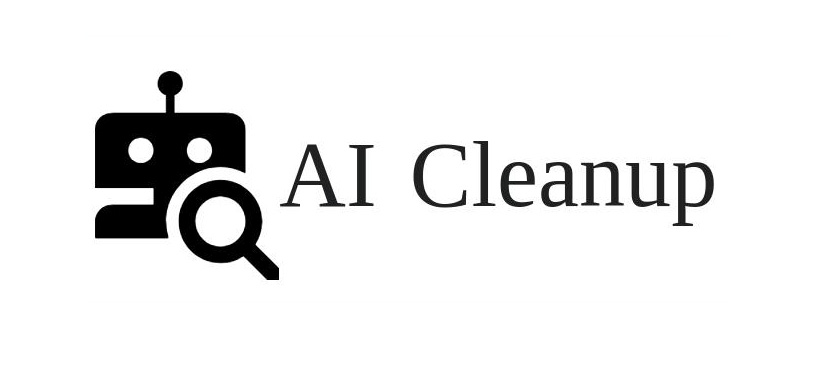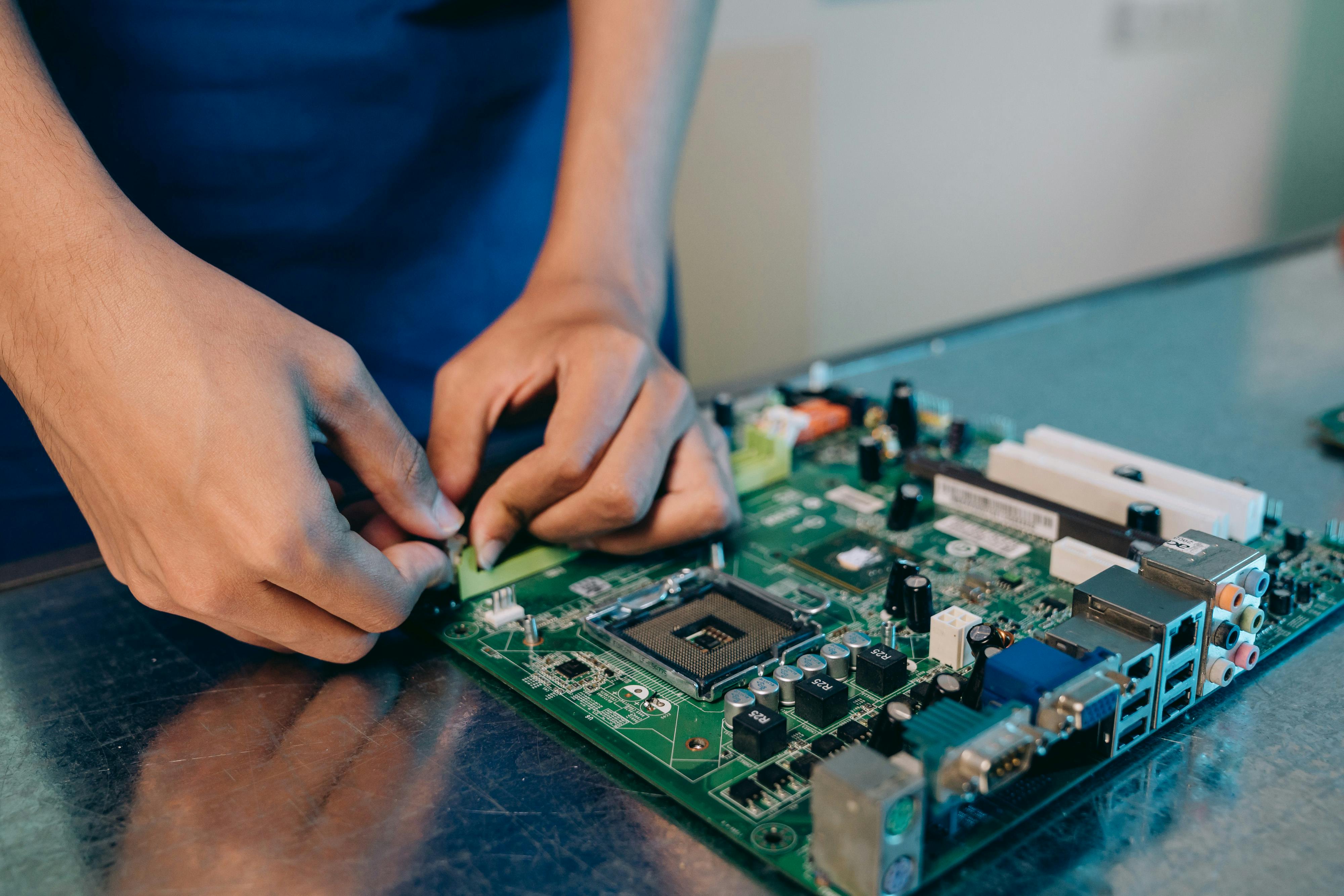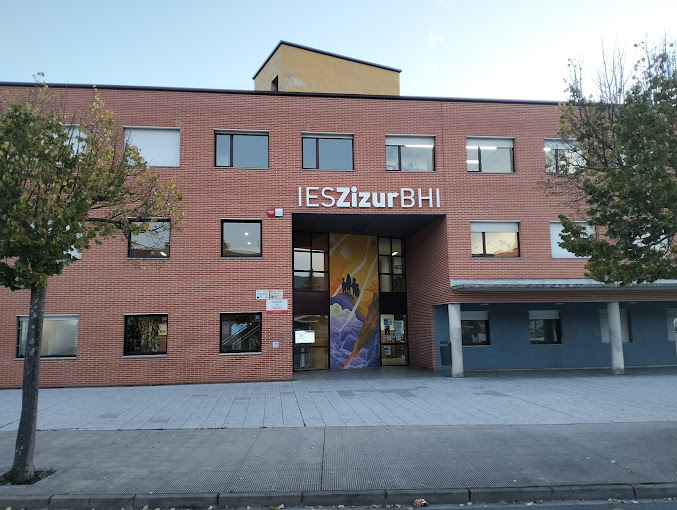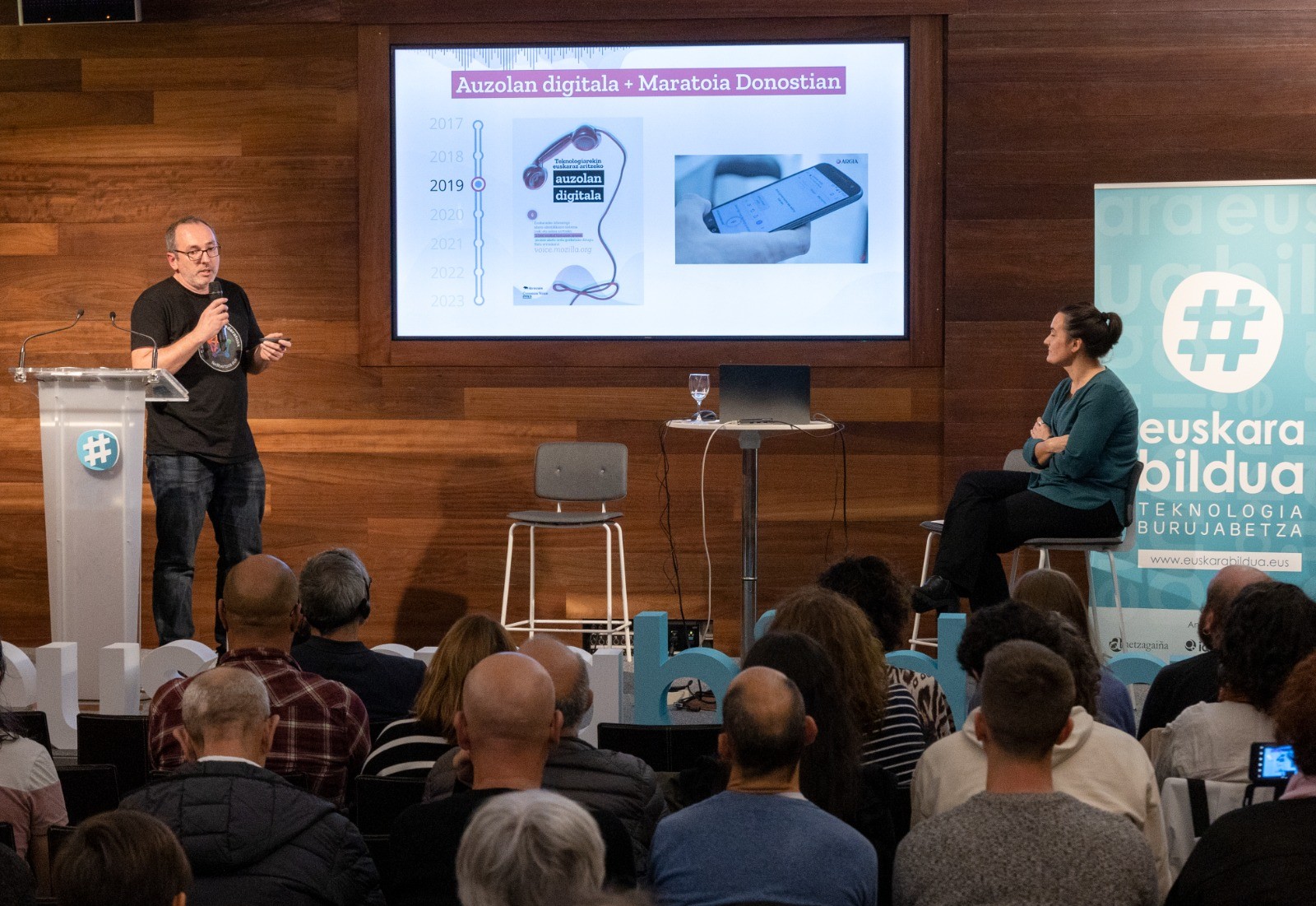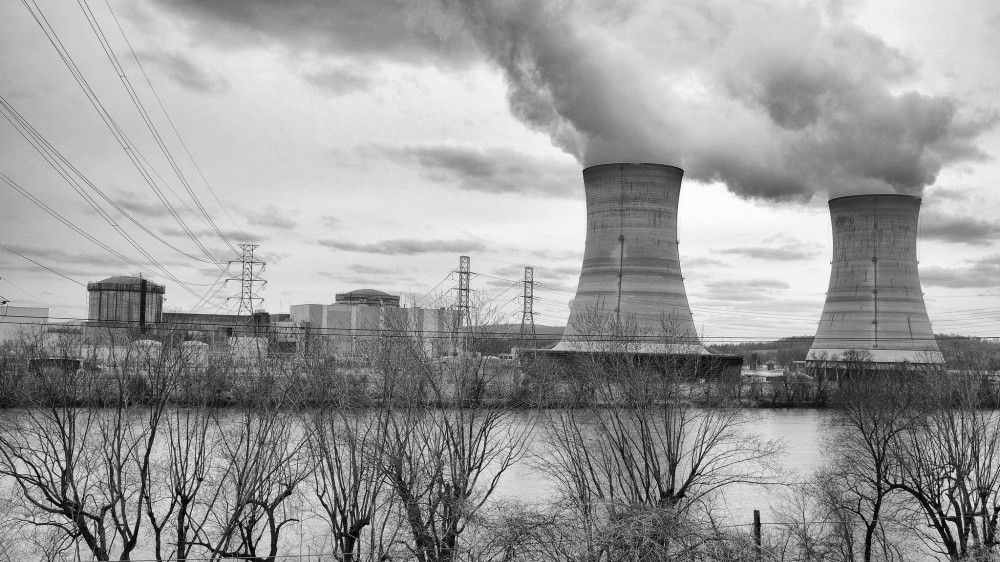"With the algorithmic logic of society we will continue to exploit human beings"
- Bachelor of Physics and Doctor of Philosophy, Adrián Almazán (Madrid, 1990) has his usual residence in Vitoria, but currently teaches at the Carlos III University of Madrid. It analyzes the effects of digitalisation on the environment, energy and society and summarizes them in the book Against the Doctrine of Digital Shock. In the framework of the quantum supercomputer that IBM wants to install in San Sebastian, it offered a conference organized by Satorralaia and its partner Ekologistak Martxan: “It’s a wager, a speculative wager.”
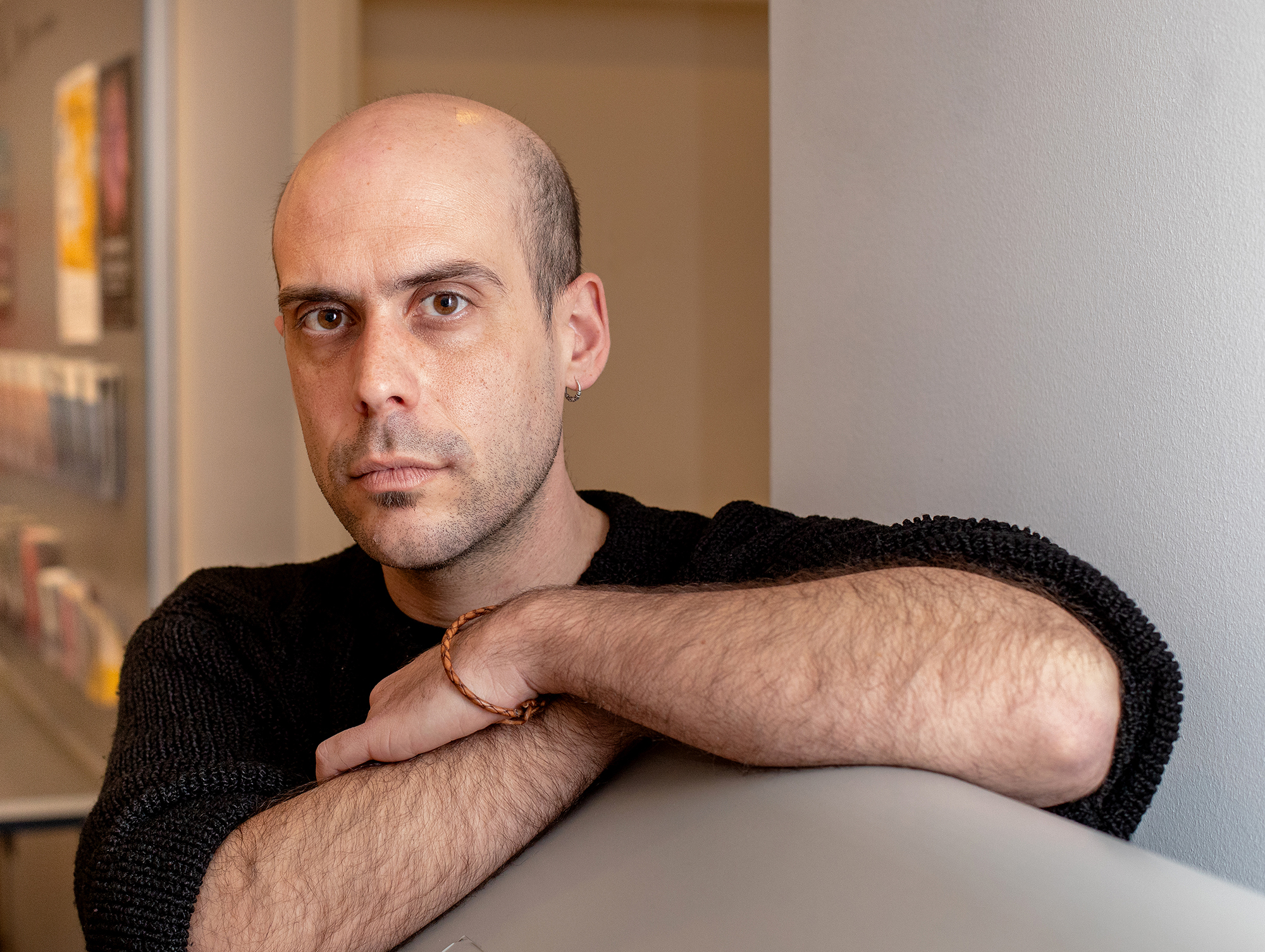
We have been told many times that digitalisation is key to the energy transition, but in Against the doctrine of digital shock (against the doctrine of digital shock) they say it is just the opposite, why?
It is usually said that digital is more efficient, that it will optimize processes and that it will reduce the material weight of the economy to keep growing. But this story has two problems. We know that the idea of efficiency is not so simple since Jevons' paradox was formulated, it was first seen with coal: more efficiency doesn't mean you save material. This is the case, for example, with the efficiency of cars, when they consume less petrol: being cheaper, more cars will be used and longer, which can lead to a higher level of overall consumption.
And what's the other problem?
It has to do with the alleged dematerialisation. Industrial capitalism has a very complicated equation that puts economic growth, energy consumption and the ecological footprint in a linear, that is, proportional correlation that has historically never been broken. But now it is said yes, that it can be dematerialized with digitalisation, although we do not have to think much to see that that is mere propaganda.
Digitalization also requires a lot of material, including minerals.
We have a very close relationship with our device, but at the same time very short. Beyond that we see nothing, but these devices depend on a lot of raw materials and very large quantities are extracted from the start. The translation of the book Cobalt Red by Siddharth Kara in Spanish has just been published (Captain Swing, 2023), in which the case of Congo is clearly explained. It has 75 per cent of the world ' s cobalt reserves, the extraction of which is subject to manual mining, child labour exploitation, toxic pollution and diseases.
And besides the material, you need fossil energy.
In extraction, a lot of energy is consumed, as well as in the transportation, manufacturing and use of materials. Then the devices become waste, which generates environmental impacts that are dislocated in countries like Ghana, where they end up. We can't separate our cell phone from the network: fog is connected to each other, so it needs a lot of energy, which mainly has climate impacts on a fossil system and in general ecological.
"We have a very close relationship with our device, but at the same time very short. We see nothing further, although from the very beginning a lot of materials are extracted"
They say that Europe will have to make ‘alliances’ with countries with minerals and rare earths. Does this word not hide another colonization process?
I would distinguish one case from another. On the one hand there is traditional neocolonialism, like Kongo. Then there are other cases like the so-called "lithium triangle," made up of Chile, Argentina and Bolivia. Strategies are not the same: The Argentina of Milei has opened its doors to international private industries, while Bolivia wants to take steps towards sovereignty in production. China is the most special case, together with India, which has emerged from dependence and has reached a geopolitical centrality. China has almost a monopoly on rare earth and we have seen a curious movement: from the export of this basic material for wind farms, it has moved on to the marketing of wind farms, and now Europe, far from buying raw and cheap raw materials, is obliged to buy the final product.
So is there geopolitics behind digitization?
And war. Quantum computing, artificial intelligence, mass data processing, video surveillance, automation ... All the paradigms of digitalization have been strategic for the military. Everything related to artificial intelligence should be understood in geopolitical keys. To give you an idea of how important it is: To prevent China from being surpassed technologically, EE.UU. orders the embargo of significant technologies for artificial intelligence. They know the importance of having privileged access to certain technologies to have a good position of war.
He talked about fog, it seems to be virtual and non-polluting, but he said the Internet is "the largest and most complex infrastructure in human history."
I don't know it en masse, but qualitatively yes. It is a planetary infrastructure, perhaps much more extensive than road networks, and it is necessary to have a wide range of submarine cables with terrestrial interconnections, such as the one we have in Bilbao, and a lot of interconnected servers, as redundancy is necessary to prevent data loss.
Lately, we're seeing satellites more than stars.
It's curious because the weather is related to the emergency. If you like, you could make a political story of internet broadcasting. First were military experiments, then came civil development, so the states promoted the construction of cables at the bottom of the sea, and now we are in the age of satellites, but with private initiative. Climate change has called into question the duration of coastal infrastructures, cables have become war targets, while satellites remain owned by large companies.

Giant servers need electricity, but also water, for what?
They must keep them at the lowest temperature possible to be compatible with their computational regimen. Think this server is a computer that works 24 hours, it can end up getting too hot. In the Scandinavian countries there has been a bubble of speculation to attract these facilities.
What do these factories mean when deciding where to build them?
There are different reasons. Scandinavia, for example, has a cooler climate, which leads to a reduction in energy use, a lower cost. Other areas have large amounts of water and are used for cooling. The same is true of chip factories, which need a lot of water. Right now there is a great conflict in Grenoble.
The Donostia quantum supercomputer will be used to simulate materials, store energy and new medicines.
In this respect, the debate that interests me is what we want to give priority to. The climate is increasingly unstable, the lack of energy and materials... What are we going to do about it? In our report on eco-social transitions for the Manu Robles-Arangiz Foundation, we concluded that tractor sectors such as automotive are condemned to death in Hego Euskal Herria. With the quantum supercomputer, I think we want to go in the same direction, trusting blind in progress and technology, thinking they're solutions. And what you want me to tell you, invest EUR 120 million when we don't know what it will be for...
For my speech, I've been looking at the articles from the MIT Technology Review, and in 2022, you still find experts in quantum computing saying that this is a hype, a kind of bubble, of great scientific interest, but it may never be viable. However, if it succeeds, it will continue to reproduce those food consumptions, have ever more big data computed, continue with the algorithmic logic of society and other perverse logics: we talk about energy consumption, but also about human exploitation.
“If the quantum supercomputer succeeds, we will continue to reproduce these food consumptions and the huge amounts of big data”
Is there precariousness behind artificial intelligence?
An essential part of training is done through precarious work, with many bodies behind it. There are people who have to decide who the output should be in the face of an input, what is appropriate and what does not make sense, as happens with content control on social networks like Facebook. Normally they are people from the Global South, only those who can earn one euro per hour. We would continue in that exploitation, in a worrying social direction. And who is interested in replacing the human work with an algorithmic work? Only that is done for private companies to increase their profits.
This supercomputer belongs to the IBM corporation and other servers are the most giant like Google. Where is technology in all this sovereignty?
Since we launched the accelerator in digitisation in 2020, the transfer of this sovereignty is total. They have introduced Google Classrooma into education and forced us to use private software in many other civil services; soon having an iPhone will become an obligation... But it's not just a matter of ownership, it's deeper: you can reduce all activity to an interface, and that's very impoverishing the human experience.
For example, what is a relationship for an application like Tinder? A set of items. It creates a black box, privately owned, where we don't know how things are measured, but we know that whoever has more money will have more to gain. And what about justice or educational evaluations if you do the same thing? All this is going on, it's happening, and they present it in a disguise of objectivity because the algorithm has "decided."
How has this explosion of artificial intelligence influenced your thesis?
The idea based on probability is as old as Google. What they have exploded now are creative artificial intelligences, which you can create for the first time texts and images in a simple way. We had doubts about whether some things could be done, but it has been seen that yes. Does that mean that our thesis was incorrect? On the contrary, it has reinforced the ideas we had about metabolic impacts. When Open AI made AI available to everyone free of charge, it received a demand for so much energy, which had to take a drastic double step: either collect, or reduce the performance it offered in an improved version; otherwise, the servers fell for consumption and were not economically profitable.

Before you talked about substitution, will these machines be able to replace all jobs?
This debate goes back to the 19th century, but it gained strength in the 1960s, not with digitalization, but with automation. It was believed that the first productive robots would represent the workforce and give more power to the property class. The worker only became executor, displaced and without the ability to strike, because his knowledge was no longer essential. With the issue of substitution, there has always been a position that I believe has a snob tone, which says that there is no fear that artificial intelligence will replace intellectual work because “a machine will never be able to do what a human being does”. I agree with the latter, but this has not been an obstacle to the machines of the workforce to a large extent. A craftsman will always do better work than a machine, so it cannot be said that there is too much, of course, but the problem is that by generalizing a machine the work of the craftsman has no way out, because he cannot compete in price. That is why industrial products are widespread and it is forgotten that there is an alternative to labour... It's a kind of substitution.
If it ceases to exist.
Will it be worse in quality? Yeah, but does that matter to anyone? No.
And what consequences can it have socially?
Its importance lies in the decoupling between creativity and social transformation. For example, we would have no connection between the art seen in the 20th century and social changes. But who does that matter to? I tell people that they have to pay no. So it's interesting to see how some sectors, like the actors' unions, are mobilizing because they're conscious, but although there are exceptions, in other sectors they've done it enthusiastically. We are on that limit.
Many years ago, Dr. I knew the abuse chatbot, and I also realized the speed at which people can engage with these machines. Being social animals, the relationship is natural and necessary, and as the name 'relationship' says, it always leads to a response from the other. Receiving... [+]
In the last year, it has happened to me to see people related to the non-professional realm in digital groups that have used artificial intelligence to give arguments to others. I share it as my own. One's own, but not linked to the sense of property, but processed from one's own... [+]
Artificial Intelligence (AI) is revolutionizing not only our daily lives, but also the way we work in companies and interact with companies through Artificial Intelligence tools or developments in the use of language technology. It is also to be hoped that in the coming years... [+]
Human beings have never been easy to think calmly for long periods of time, we live with the responsibility of taking our lives forward, both ours and our descendants. In this opportunity that we have had to live, we want to do things as best we can. For these responsibilities,... [+]















